Research
Learning Safe Human Robot Co-manipulation
Mitigating Human Uncertainties in Human-Robot Collaborative Transportation with Whole-Body Dynamics. [Abstract]
- We are working on an experiment to explore human robot co-manipulation with guaranteed safety.
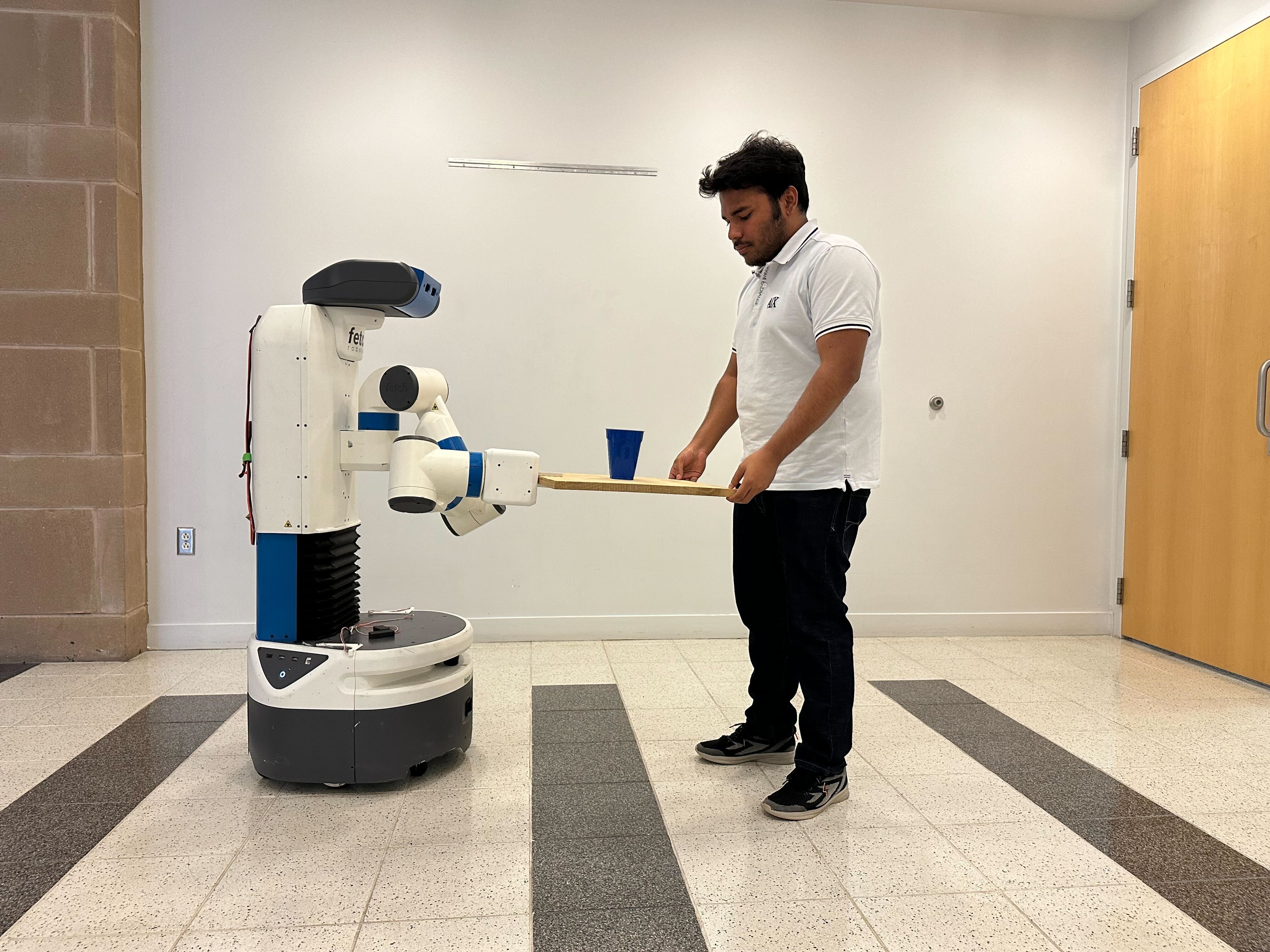
Learning Multi-robot Corrdination
D3G: Distributed, Differentiable,Dynamic Game for Learning Multi-robot Coordination from Demonstrations. [Abstract] [Paper] [Video]
Team Coordination on Graphs with State-Dependent Edge Cost. [Paper] [Video]
- This project aims to achieve autonomous coordination for multi-robot systems, with scalability for large numbers of robots; intelligence in terms of human inputs; and robustness against various types of uncertainties.
- We are interested in establishing a novel bottom-up learning-to-coordinate framework that incorporates optimal control, game-theoretic approaches, and inverse learning methods into the control and coordination of multi-robot systems.
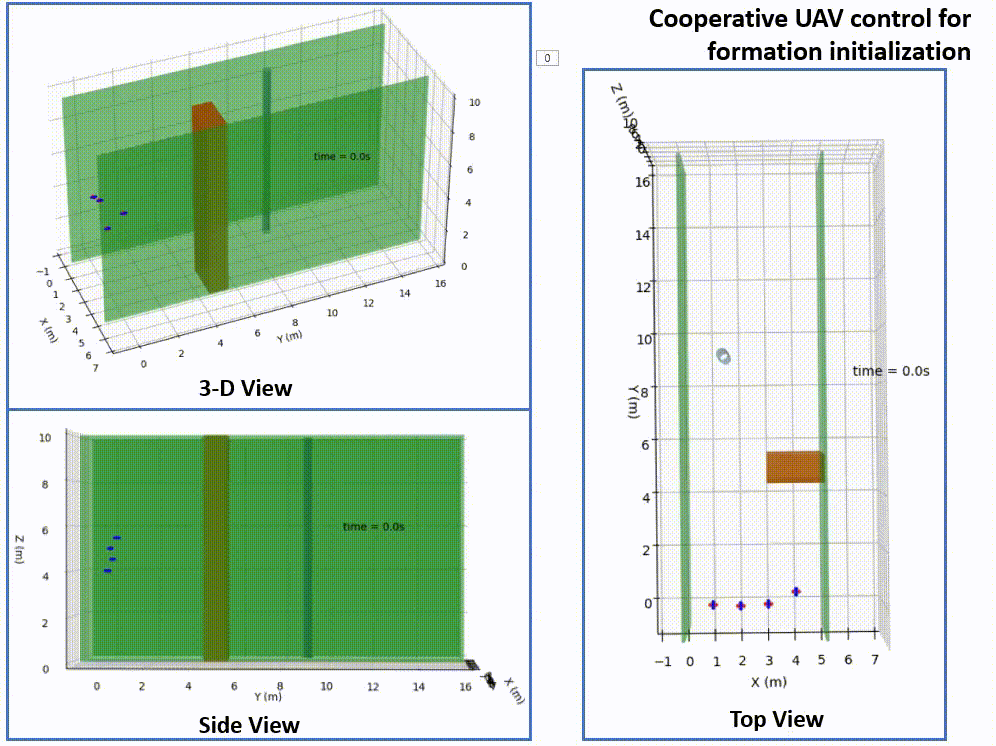

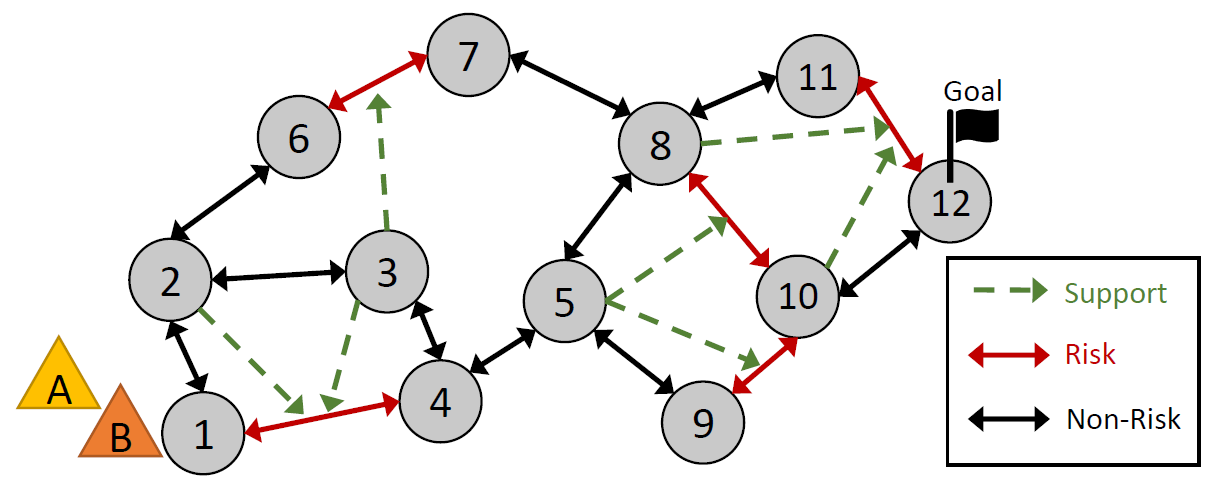
Data-driven Identification and Reconstruction of Brain Neuron Networks
Subject and Task Fingerprint using Dynamics Reconstruction from fMRI Time-series Data. [Paper] [Video]
Data-Driven Reconstruction of Firing Rate Dynamics in Brain Networks. [Paper]
Data-Driven Control of Linear-Threshold Network Dynamics. [Paper]
- Employed data-based approaches to reconstruct the firing rate dynamics or Blood-oxygen-level-dependent (BOLD) dynamics of brain neuron networks.
- Provide subject and Task identification using Dynamics Reconstruction from BOLD fMRI Time-series Data.
- Investigated the data-driven (model-free) control of brain neuron networks, which aims to uncover the functioning mechanism of human brains and fight against brain diseases.
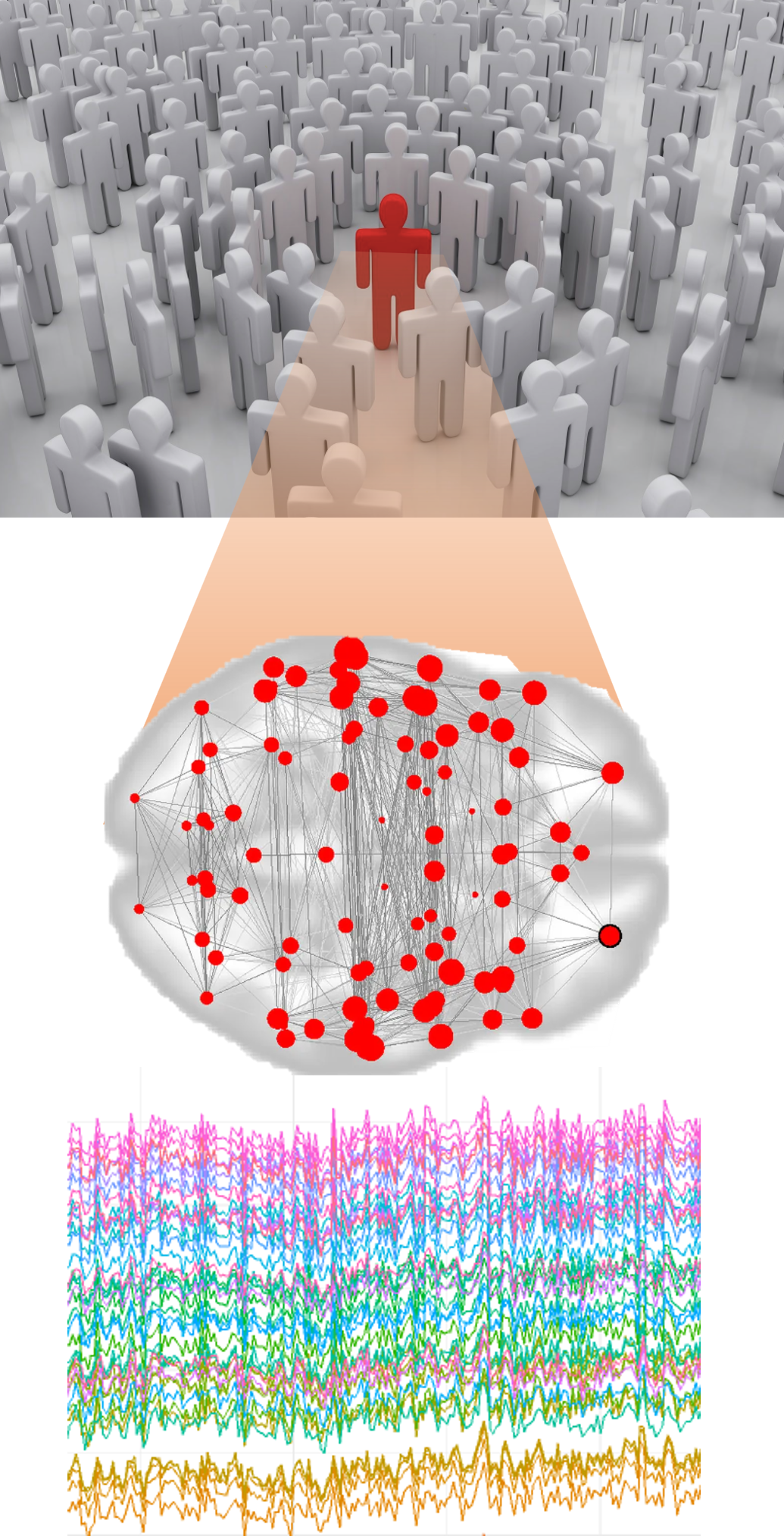
Embedding cybersecurity strategies in distributed control
Resilience for Distributed Consensus with Constraints. [Paper]
A Resilient Convex Combination for Consensus-based Distributed Algorithms. [Paper]
- Developed an algorithm to create a resilient fusion vector, which is the convex combination of information only from normal agents and automatically isolate information from malicious agents.
- The resilient fusion vector can be used by the multi-agent system to reach a resilient consensus in the presence of malicious agents with Byzantine attacks.
- The developed algorithm has low computational complexity.
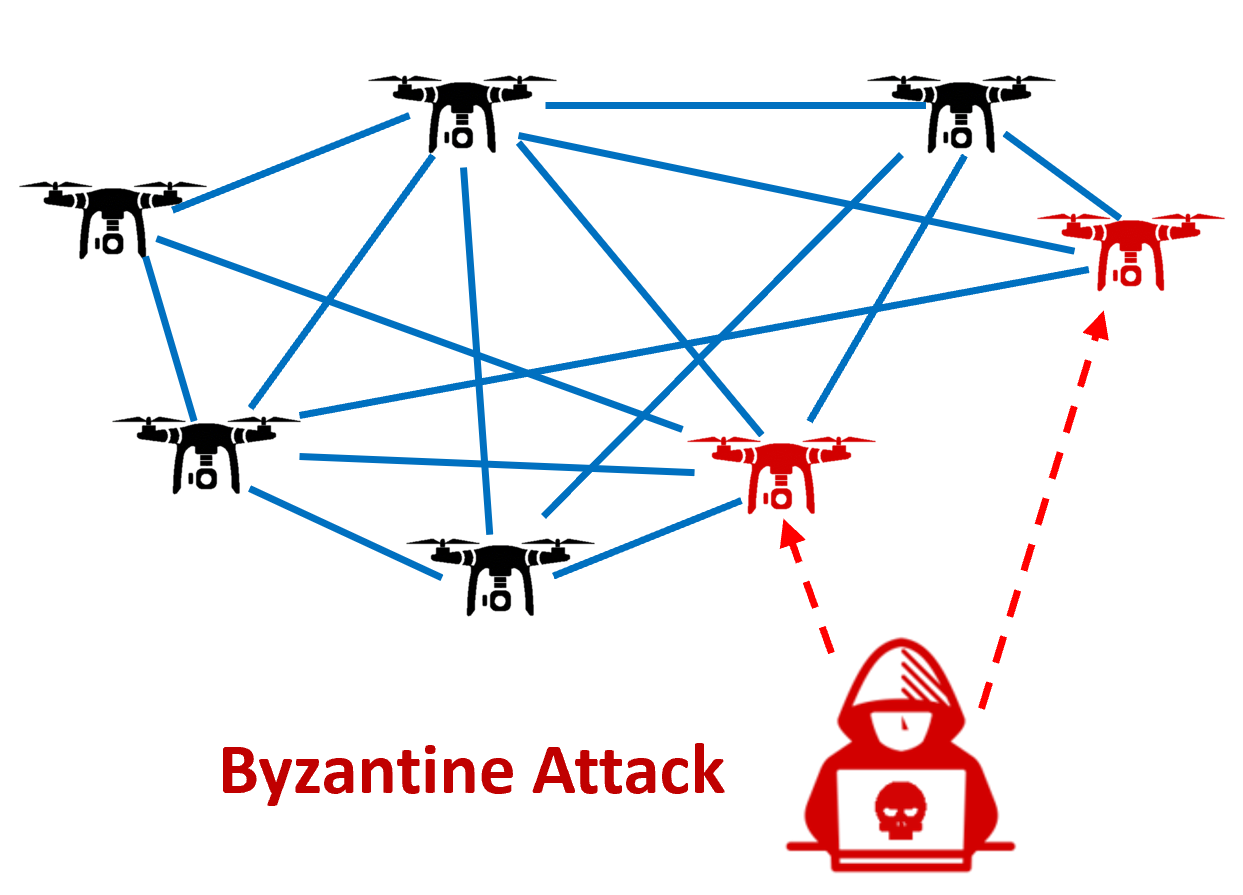
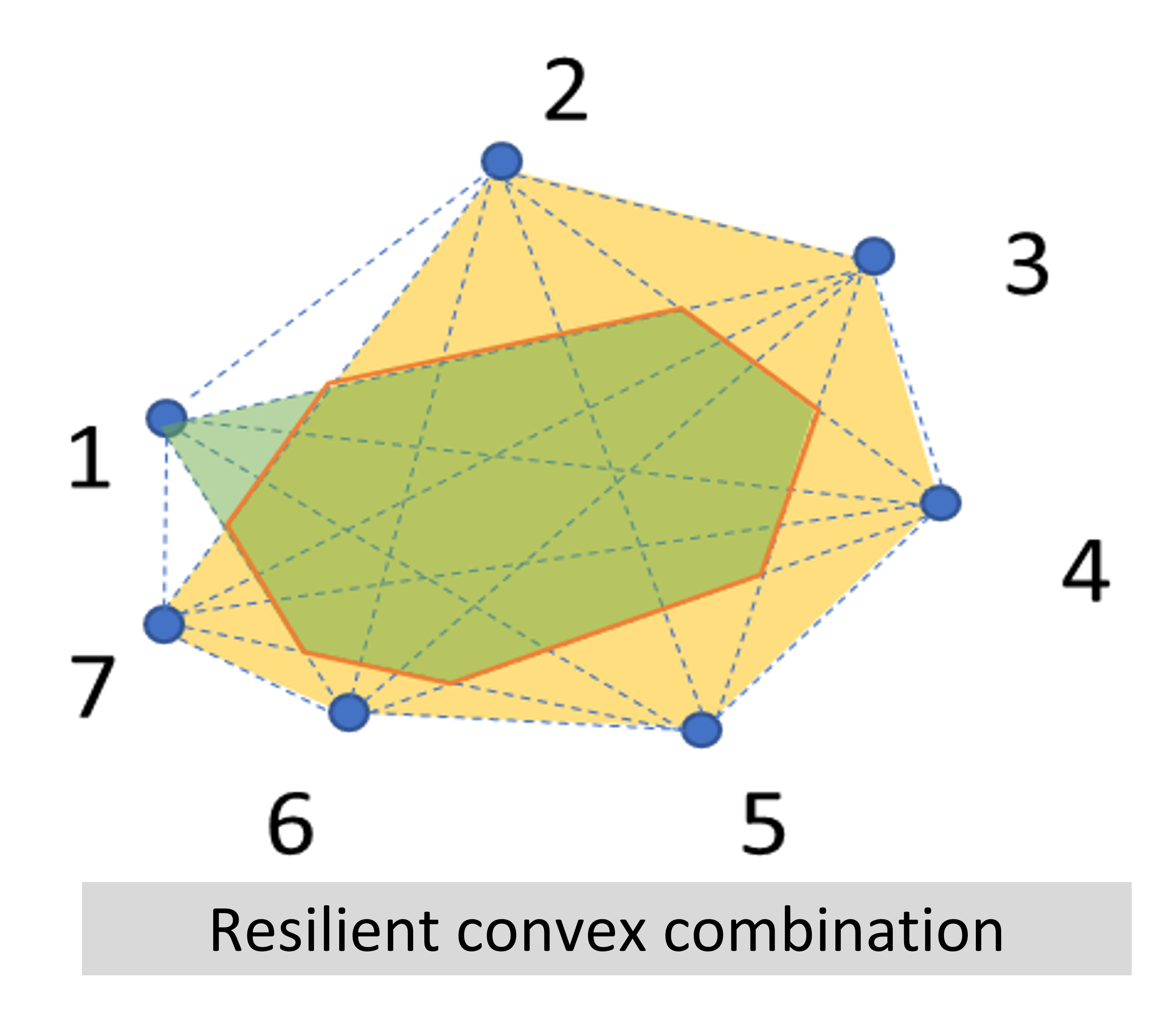
AI-assisted dynamic planning in multi-robot systems
- Developed a distributed algorithm for multi-agent information fusion based on solving least squares minimization.
- Developed a distributed algorithm for multi-agent compressive sensing based on solving l1 norm minimization.
- Proposed a double-layered network framework that allows consensus based distributed algorithm to achieve better scalability.
- Based on integral feedback, proposed a distributed algorithm for multi-agent networks to solve optimization problems with local constraints. The algorithm requires less communication bandwidth and achieves exponential convergence rate.
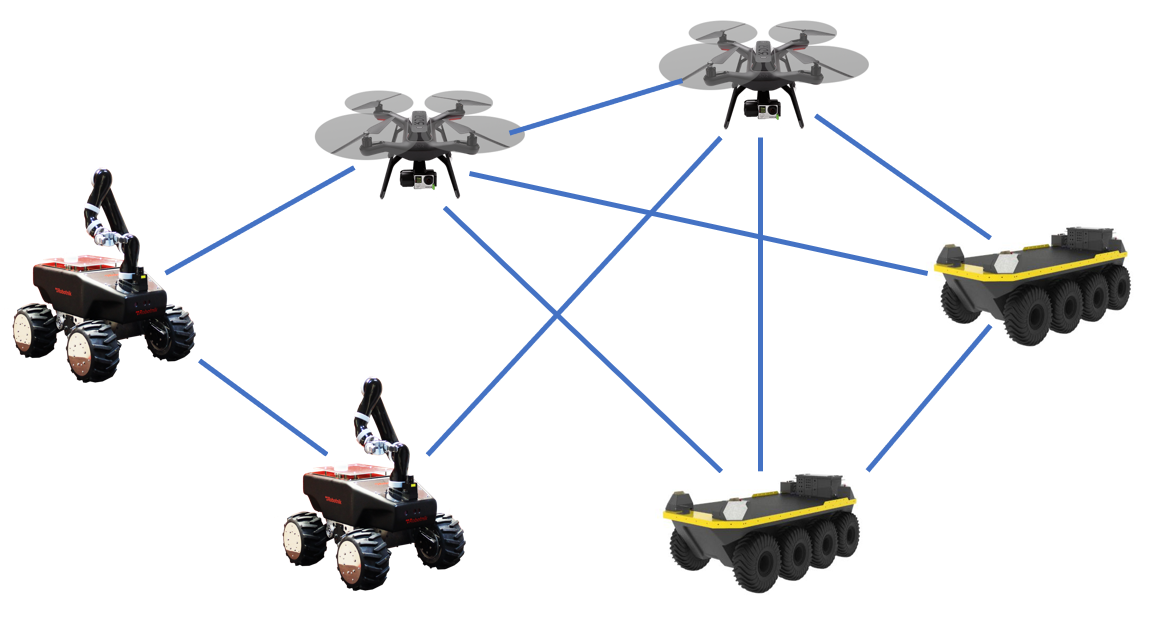

Distributed task allocation in multi-robot systems
- Developed an Iterated Auction-Consensus Algorithm (IACA) for task allocation in distributed multi-robot networks.
- The IACA enables each robot in the network to bid tasks of interest at the auction stage and then utilizes the idea of consensus to resolve conflicts among robot' bids. It has good resilience towards temporal cyber-attacks.
